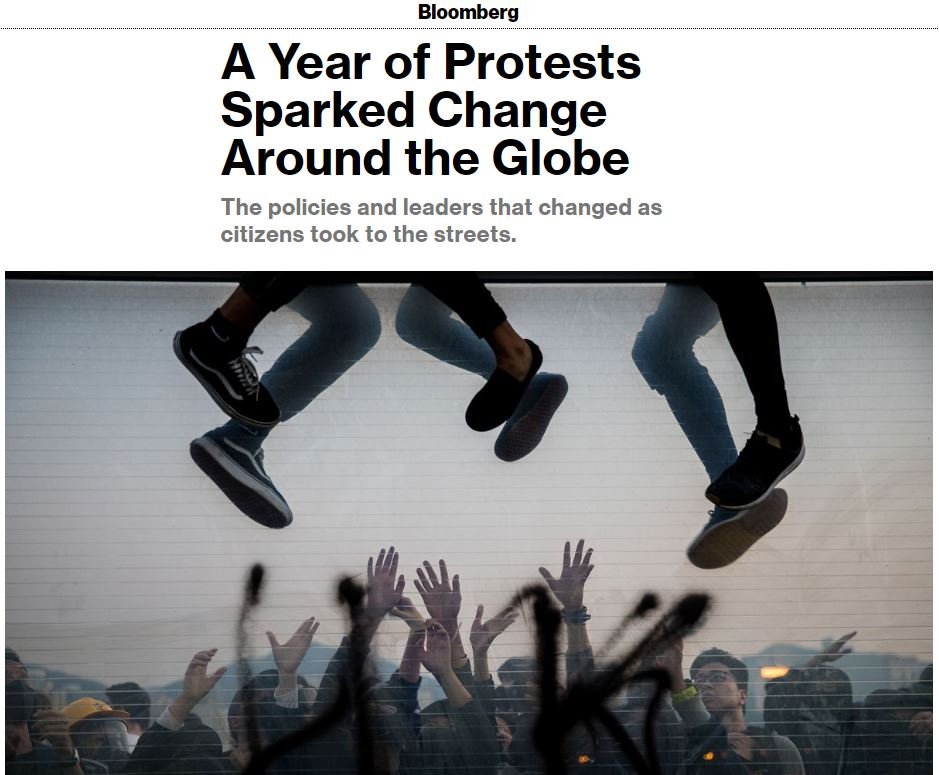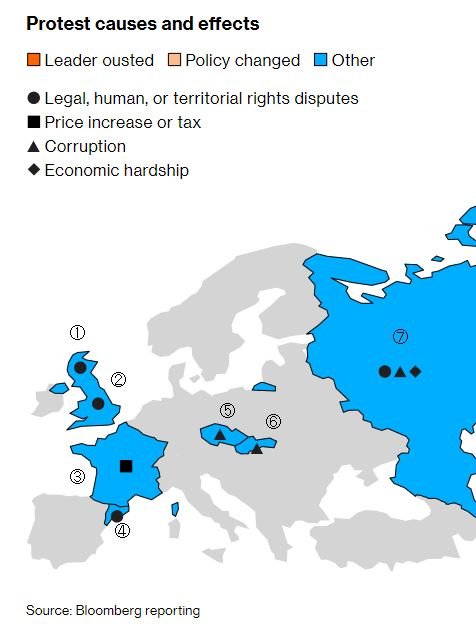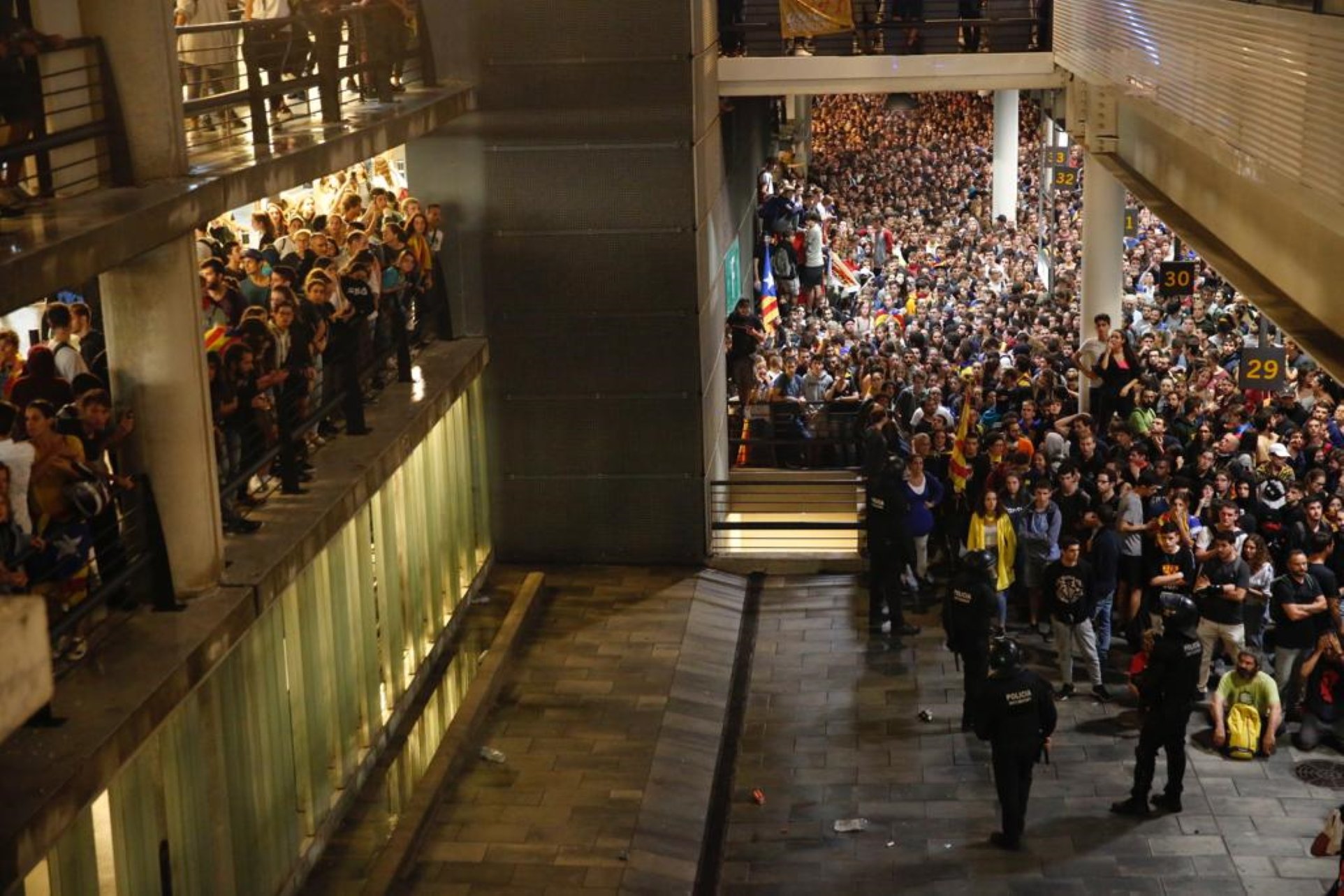The world's biggest business news provider, Bloomberg, delivers economic-based news and information as its bread and butter, but inevitably, this also includes political stories and analysis from around the world. In one of its latest articles, looking back on 2019 as the year comes to a close, the US media outlet has surveyed the parts of the planet that, in one way or another, have been affected by popular protest - also classifying them by the type of changes which occurred as a result.
"Economies on the verge of collapse, a yearning for greater democracy, revulsion against corruption and inequality - the grievances that drove people into the streets in 2019 were consistent across continents. Some marched peacefully, others clashed violently with security forces, and in at least five places the unrest helped topple government leaders," the map-based article begins.

And it is in this summary that Catalonia appears. "The impasse between Catalonia and Spain’s government in Madrid flared anew, with no resolution in sight," is Bloomberg's "verdict" on the events in Catalonia in 2019 which were themselves largely reactions to another verdict, the Spanish Supreme Court's decision to sentence pro-independence leaders to long jail terms for sedition. The announcement of the sentences in October led to a new wave of protests in Catalonia against the political repression and in favour of the right to self-determination, two years after Catalans had voted on independence in a referendum banned by the Spanish government and violently disrupted by police.
In terms of the overall European picture of protest, Bloomberg includes the post-sentence protests in Catalonia alongside Scotland's largest pro-independence march, the protests related to Brexit in the UK, the Gilets Jaunes protest movement in France, anti-corruption demonstrations in Slovakia, actions against the prime minister of the Czech Republic and anti-government protests in Russia.

The business news outlet breaks down the conflicts into four different groups based on protest causes: legal, human or territorial rights disputes is the first category, which includes the protests in Catalonia, Scotland, the United Kingdom and Russia. The conflict in France is included in the price and tax rises category, while the demonstrations in central Europe and Russia are mostly about corruption. The fourth category, economic hardship, is only applied to one case in Europe - that of Russia.
Beyond Europe, Bloomberg records a similar number of conflicts in all other major global regions - with the exception of North America. However, those in Latin America, Africa, the Middle East and East Asia were more likely to force policy or leadership changes, from the resignation of Algeria's president Abdelaziz Bouteflika, to the Hong Kong authorities' withdrawal of their planned extradition bill. The effects of the demonstrations in Catalonia are simply listed in the "other" category, like all the other European protest actions included.

